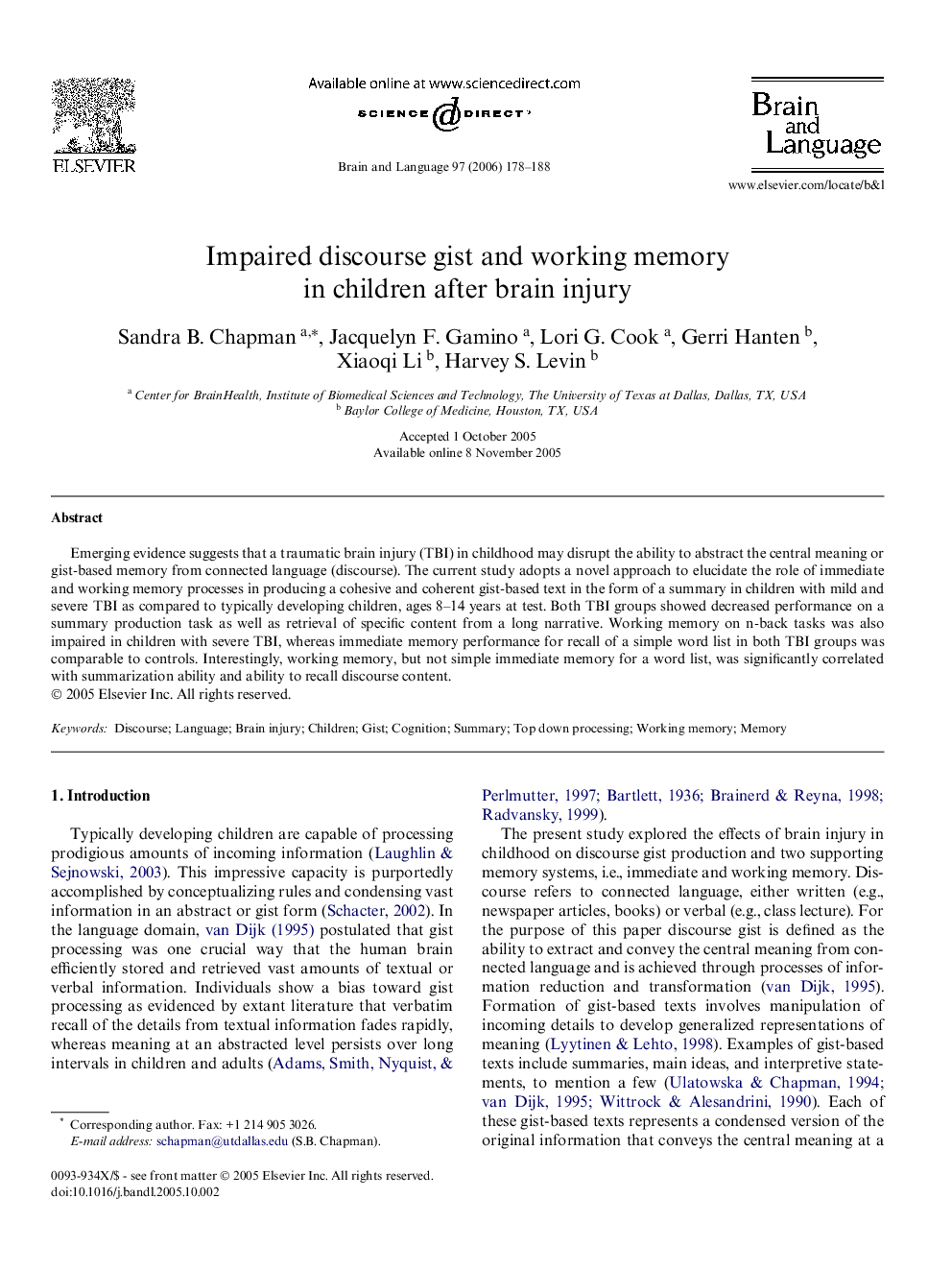| Article ID | Journal | Published Year | Pages | File Type |
|---|---|---|---|---|
| 926051 | Brain and Language | 2006 | 11 Pages |
Emerging evidence suggests that a traumatic brain injury (TBI) in childhood may disrupt the ability to abstract the central meaning or gist-based memory from connected language (discourse). The current study adopts a novel approach to elucidate the role of immediate and working memory processes in producing a cohesive and coherent gist-based text in the form of a summary in children with mild and severe TBI as compared to typically developing children, ages 8–14 years at test. Both TBI groups showed decreased performance on a summary production task as well as retrieval of specific content from a long narrative. Working memory on n-back tasks was also impaired in children with severe TBI, whereas immediate memory performance for recall of a simple word list in both TBI groups was comparable to controls. Interestingly, working memory, but not simple immediate memory for a word list, was significantly correlated with summarization ability and ability to recall discourse content.
